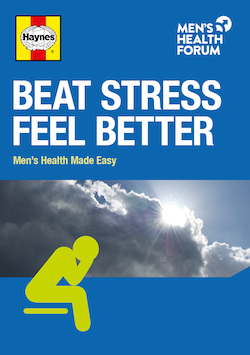Sexism is bad for your mental health
Men who see themselves as playboys or as having power over women are more likely to have psychological problems than men who conform less to traditionally masculine norms, according to research published by the American Psychological Association.
The research was a meta-analysis of 78 different research samples involving nearly 20,000 participants that focused on the relationship between mental health and conformity to 11 so-called traditional masculine norms. These norms included the primacy of work, risk-taking and a desire to win.
All 11 masculine norms were associated with negative mental health outcomes but the association was most consistent for three norms: self-reliance and the two norms described by lead researcher Y Joel Wong as 'sexist' (pursuit of playboy behaviour and power over women).
Wong said: 'The masculine norms of playboy and power over women are the norms most closely associated with sexist attitudes. The robust association between conformity to these two norms and negative mental health-related outcomes underscores the idea that sexism is not merely a social injustice, but may also have a detrimental effect on the mental health of those who embrace such attitudes.'
Even more concerning, said Wong, was that men who strongly conformed to masculine norms were not only more likely to have poor mental health but also also less likely to seek mental health treatment.
- Feature article: Let’s hear a realistic discussion of male mental health: as a new survey shows that men with ‘macho’ attitudes are more likely to have mental health problems, Jim Pollard argues that reducing the alarming male suicide rates requires a new language as well as new services.
What do you think?
|
The Men’s Health Forum need your support It’s tough for men to ask for help but if you don’t ask when you need it, things generally only get worse. So we’re asking. In the UK, one man in five dies before the age of 65. If we had health policies and services that better reflected the needs of the whole population, it might not be like that. But it is. Policies and services and indeed men have been like this for a long time and they don’t change overnight just because we want them to. It’s true that the UK’s men don’t have it bad compared to some other groups. We’re not asking you to ‘feel sorry’ for men or put them first. We’re talking here about something more complicated, something that falls outside the traditional charity fund-raising model of ‘doing something for those less fortunate than ourselves’. That model raises money but it seldom changes much. We’re talking about changing the way we look at the world. There is nothing inevitable about premature male death. Services accessible to all, a population better informed. These would benefit everyone - rich and poor, young and old, male and female - and that’s what we’re campaigning for. We’re not asking you to look at images of pity, we’re just asking you to look around at the society you live in, at the men you know and at the families with sons, fathers and grandads missing. Here’s our fund-raising page - please chip in if you can. |

